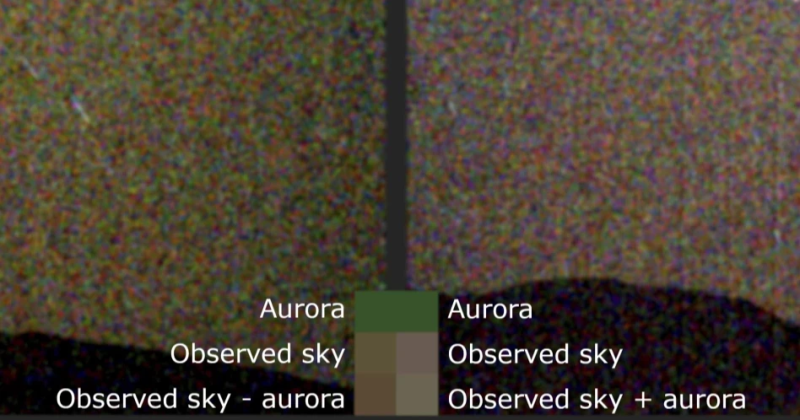- Fakhrul condemns attacks on media, calls for unity, justice |
- 2 cops among 4 hurt in clash outside Indian Assit H.C. in Ctg |
- Inqilab Moncho urges people to avoid violence |
- Hadi’s death: Prothom Alo, Daily Star offices set afire |
- সন্ধ্যায় পৌঁছাবে হাদির মরদেহ, জানাজা শনিবার |
NASA’s Perseverance spots Mars’ first visible aurora

NASA’s Perseverance rover has captured the first-ever aurora on Mars visible to the human eye — a promising development for future astronauts who may one day witness the phenomenon from the Red Planet's surface.
The green aurora, shimmering through Mars’ dusty atmosphere, was generated by a solar storm in March 2024 and observed using the rover’s onboard cameras. European and American scientists had received three days' advance notice of the incoming solar event, allowing time to prepare for the historic capture.
While auroras have previously been observed at Mars, they were only detected in ultraviolet wavelengths. This latest discovery marks the first time one has been recorded in visible light — the kind detectable by the human eye. The event followed a solar flare and coronal mass ejection directed at Mars, triggering the auroral display.
Published in the journal Science Advances, the findings suggest that forecasting auroras on Mars is now possible, opening new avenues for studying Martian space weather. “While dust in the atmosphere dimmed the aurora’s brightness, stronger events or clearer conditions could produce auroras visible to astronauts on the surface,” said Elise Wright Knutsen of the University of Oslo.
Researchers noted that this is the first time an aurora has been reported from the surface of a planet other than Earth. All previous Martian aurora detections came from orbiting spacecraft.
Launched in 2020, NASA’s Perseverance rover has been exploring Jezero Crater since 2021, collecting rock and soil samples for a future return to Earth. Scientists believe the region, once home to a river delta and ancient lake, could hold clues to microbial life in Mars' past.

